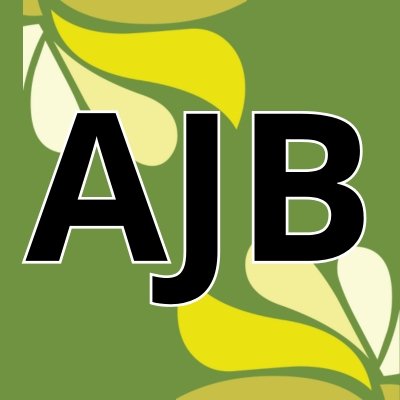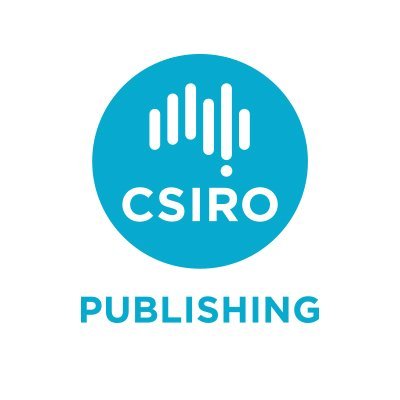
Australian Journal of Botany
@AusJBotany
Followers
64
Following
431
Media
8
Statuses
97
This account has been archived. Follow us on Bluesky for updates: https://t.co/2mPx51UCMF
Joined August 2024
This account has been archived. Find us on Bluesky to stay in touch: https://t.co/VxCPftbQz8 Or tick Australian Journal of Botany on this form to hear from us via email:
0
0
0
#openaccess Understanding seed lifespan is allowing seedbanks like @kingspark_wa to prioritise seed collection for wild species conservation, writes Sundari Balasubramaniam & colleagues from @MUniResearch @uwanews @AarhusUni_int
connectsci.au
Seed banks play an important role in ex situ plant conservation. However, managing wild species seed banks is complex, with seeds ageing and dying at diffe
0
1
2
Happy #ThickTrunkTuesday! 🌲 Tasmania is a global hotspot for giant trees! 🌏🌳 #DahlFellow Brett Mifsud & team found 18+ eucalypts over 90m, with ‘Centurion’ standing at 96m. Read the study: https://t.co/CHoxRrMjVW & Guardian coverage: https://t.co/pl8SG17pdF 🌿 📸: Supplied
1
15
66
#openaccess Eucalytpus regnans confirmed the tallest flowering plant in the world, following survey of Tasmanian wet forests. Brett Mifsud & colleagues @utas_ @UW_SEFS
connectsci.au
A comprehensive survey of Tasmania’s wet eucalypt forests was conducted to find, measure and document the health and environmental characteristics of the s
0
2
2
#openaccess Heat from fire triggers germination of golden top wattle seeds (Acacia mariae) - particularly following very severe, intense fires, writes Boyd Wright & colleagues @UniNewEngland @UQ_News
connectsci.au
Our study in the semi-arid Pilliga forest found that high-intensity fires enhance seedling recruitment in the obligate-seeding shrub Acacia mariae. However
0
1
1
Good news for authors in lower income countries wishing to publish #OpenAccess. Through our partnership with @R4LPartnership we are now able to waiver Author Processing Charges for authors from eligible regions for most of our journals. Details: https://t.co/XRrVhq6IQ6
0
2
3
1:30 PM UPDATE, THURS 23 JAN: The time has finally come! Putricia has started to bloom. Palm House will be open until midnight tonight (Thursday) and reopen from 8am tomorrow (Friday). https://t.co/IZkhEn1le1
2
29
85
#openaccess No increase in detections although greaster sampling of sentinel host species needed to monitor Phytophthora cinnamomi disease progression in southern Sydney. Tanya Mason and colleagues @CES_UNSW
connectsci.au
Phytophthora cinnamomi is a soil pathogen that can cause dieback and death in susceptible plant species. P. cinnamomi is widespread in southern Sydney cons
0
1
2
#openaccess Biocontrols manage invasive plants & can impact related, non-target species. Stephanie Chen & colleagues from @Parks_Australia @CSIRO use molecular analysis to determine whether the rare daisy fleabane (Erigeron conyzoides) might be at risk
connectsci.au
Understanding the origins of plant species is critical for accurate risk assessment in weed biological control project as well as conservation management.
0
1
1
New Year, new paper. We're half way through the UN Decade on Ecosystem Restoration (2021 - 2030), and fittingly, Jamie Kirkpatrick (requiescat in pace) and colleagues report on 50 years native vegetation change in Hobart's urban parklands @utas
0
2
3
Have you heard about the Australian Reference Genome Atlas? It's a digital atlas researchers can use to easily discover and work with genomic data. 🌱🐨🧬 Researchers can use this resource to to better-understand the environment 🌳 https://t.co/nhl61U5xtN
0
10
16
Giant Hairy Pitcher Plant Discovered In Northern Borneo | Sabah Forestry Department, Cairns Botanic Gardens Royal Botanic Gardens Victoria @RBG_Victoria, published by @AusJBotany by @GrrlScientist
#NewSpecies #botany #conservation #Borneo #SciComm
https://t.co/tWb9BAJbFQ
0
2
7
#New paper: Leandro Dias da Silva & colleagues from @UesbOficial report on a faster, cheaper field-ready method to estimate chlorophyll content in Eucalyptus urophylla and Khaya senegalensis seedlings
connectsci.au
The protocol to estimate photosynthetic-pigment content was optimized in Eucalyptus urophylla and Khaya senegalensis seedlings by using different extractio
0
1
2
Named after the orangutan 🦧, a new pitcher plant is described from Borneo by Royal Botanic Gardens Victoria botanist Dr Alastair Robinson @botanydoc and colleagues in Malaysia. See: https://t.co/WmXBTkjPoL 📸: A. Damit; A. Robinson; Nur Adillah Yusof #RBGVScience @RBG_Victoria
0
6
12
Hey plant people! Australian Journal of Botany has its own new handle @AusJBotany Please follow to get all the latest highlights. Fun fact: @jmorganecology and I (here looking out to AJB's bright future😊) are the Editors-in-Chief. Come say hi at #ESAus2024
0
3
22
Macairea radula is an evergreen shrub native Brazil, Bolivia & Paraguay, often parasitised by gall wasps. New research by Patrícia Santos Dias & colleagues @UFU_Oficial reveals how gall wasp pupae induce nutritive changes in the cells of their host
connectsci.au
Insects can live inside plant galls, and the composition of the gall cell walls plays an important role in its structure and function. Herein, the cell wal
0
0
1
Throwback to our 2016 special issue on rare plants, where we explored the genetics, ecology, and conservation of highly threatened species across Australia.
connectsci.au
Australian Journal of Botany focuses on plant biology in Southern Hemisphere ecosystems. Subject areas include: ecology; invasive forest molecular and reproductive biology; conservation; forest...
0
0
1
Journal Manager @PattedPlants has been at #IC24 this week, chatting to delegates about @AusJChem, as well as catching up with Editor-in-Chief @gakoutsantonis & Social Media Ed @CheMasnun. Be sure to drop by our stand tomorrow for a chat! #Inorganic24 #AusJChem @RACI_Inorganic
0
3
11
We're at ##ESAus2024 in Melbourne! Visit Briana (right) at the @CSIROPublishing stand to chat about publishing with us or our sister journals.
0
2
4
New paper: obligate seeding (repopulation via seed germination) enables #Banksia cunninghamii populations to persist after fire. But increasing fire frequency & severity threatens the future of this species, writes Annette Muir & colleagues @DEECA_Vic
connectsci.au
Populations of Banksia cunninghamii are declining as climate change drives more frequent, severe and widespread fires. Research on this species after south
0
0
0







